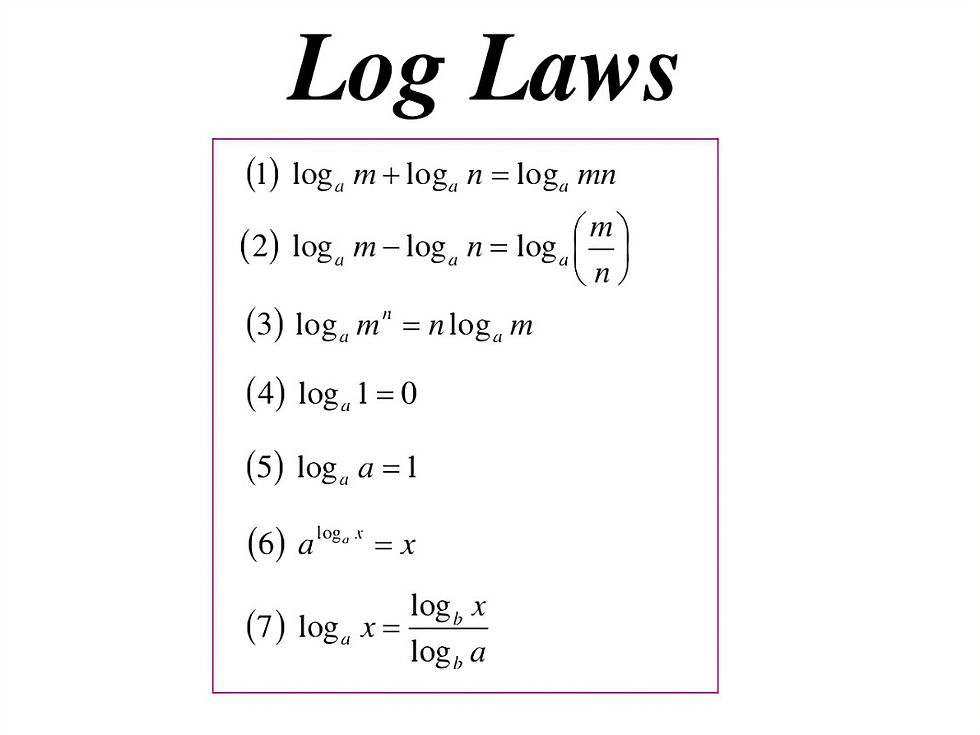Operations Of Functions
- Sean Melvein A. Vecina
- Jan 8, 2023
- 1 min read
We can evaluate two functions together if we apply the operations of mathematics.
Let f and g be the function.
Addition
f(x) = 2x^2 - 5x + 12
g(x) = 3x^2 + 7x -10
formula: (f + g) (x) = f(x) + g(x)
(f + g) (x) = 2x^2 - 5x + 12 + 3x^2 + 7x -10
(f + g) (x) = 5x^2 + 2x - 2
Subtraction
f(x) = 2x^2 - 5x + 12
g(x) = 3x^2 + 7x -10
formula: (f - g) (x) = f(x) + (-g(x))
(f + g) (x) = 2x^2 - 5x + 12 - (3x^2 + 7x -10)
(f + g) (x) = 2x^2 - 5x + 12 + (-3x^2 - 7x + 10)
(f + g) (x) = 2x^2 - 12x + 22
Multiplication f(x) = 2x + 5
g(x) = x^2 - 1
formula: (f x g) (x) = (f(x)) (g(x))
(f x g) (x) = (2x + 5) (x^2 - 1)
(f x g) (x) = 2x^3 - 2x + 5x^2 - 5
(f x g) (x) = 2x^3 + 5x^2 - 2x - 5
Division f(x) = 6x^2 - x -12
g(x) = 2x - 3
formula: (f/g) (x) = f(x)/g(x)
(f/g) (x) = 6x^2 - x -12/2x - 3
(f/g) (x) = (2x - 3) (3x + 4)/2x - 3
cancel 2x - 3 since there are both like terms
(f/g) (x) = 3x + 4
More References:
Addition:

Subtraction:


Multiplication:

Division:






Comments